CQ8: Divine inspiration
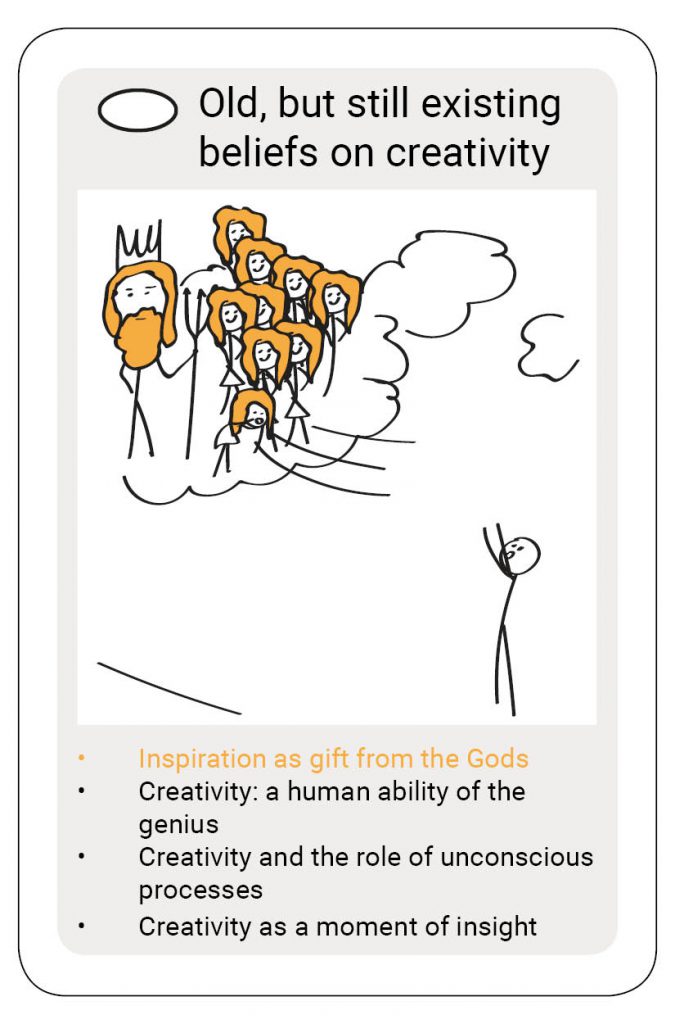 Inspiration is a Gift from the Gods. Right. Let’s start our historical review with the Big 3: Socrates, Plato, and Aristotle. I will shortly mention the first, focus on the second and end with the third. and the words inspiration, madness, demons or demonic possession. The first word sounds positive to us, the other words not really. For the Greeks, they were all the same.
Inspiration is a Gift from the Gods. Right. Let’s start our historical review with the Big 3: Socrates, Plato, and Aristotle. I will shortly mention the first, focus on the second and end with the third. and the words inspiration, madness, demons or demonic possession. The first word sounds positive to us, the other words not really. For the Greeks, they were all the same. Socrates (470 BCE – 399 BCE), you know the guy that asked questions that people found too difficult so they killed him (and that is the start of civilization, how civilized). He talked about ‘the demon as a divine gift granted to a few individuals’ (Becker, 2011: p.70).
Divine Inspiration
‘Poetry is the highest form of creation’
The Bicameral Mind
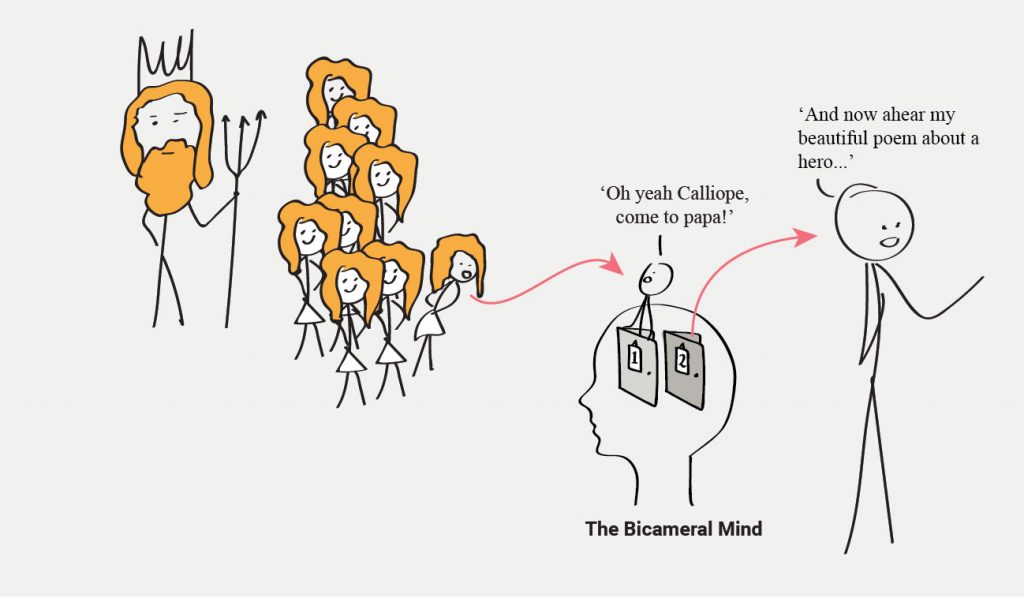
Divine inspiration = divine madness.
the madness of those who are possessed by the Muses: which taking hold of a delicate and virgin soul, and their inspiring frenzy, awakens lyrical and all other numbers; with these adorning the myriad actions of ancient heroes for the instructions of posterity. But he who, having no touch of the Muses’ madness in his soul, comes to the door and thinks that he will get into the temple by the help of art – he, I say, and his poetry are not admitted; the sane man disappears and is nowhere when he enters into rivalry with the madman.”
(Blackburn, 2014, in: Paul and Kaufman, 2014, p.147).
And/or in Ion:
“The poet is a light and winged and holy thing, and there is no invention in him until he has been inspired and is out of his senses, and the mind is no longer in him: when he has not attained to this state, he is powerless and unable to utter his oracles.”(Blackburn, 2014: p.147).
As you see from these quotations Plato uses both words to say the same thing. And in Latin, there is no difference between the words inspiration and madness (Eysenck, 1995).
And from Plato, we move to Aristotle. Now, for Plato, there is no credit for the person himself in the creative process. If you came to an ‘act of creation’, you were simply lucky because the Gods chose you. The fact that you had to translate the inspiration into a poem or so, was of no importance for him. This is where Aristotle differs in opinion. Aristotle gives credit to the person that created the poem where Plato did not (Dacey, 2011; Weiner, 2000).
Aristotle and associating
OK, I promised an association theory, but it is not really a theory. It is more that Aristotle laid the foundations for this theory.
According to Aristotle, thinking started with the person’s own thoughts. And this is what we still believe of course. I hope you see that is radically different from Plato’s idea, that thinking starts with inspiration. And thinking is a process of jumping from idea to idea: to associate. Ideas were connected based on time and space and they were either similar or opposite from the remembered events.

Aristotle didn’t put the effort into pursuing this part of his theory and the idea of the Bicameral mind remained the main idea for centuries (Dacey, 2011).
Conclusions: Back to the present
>We might laugh at the idea of the two chambers and the Muses, but the idea of inspiration in relation to creativity is very much alive. The idea that there is a relationship between creativity and insanity was founded by the Ancient Greeks. To be ‘out of his senses’ as quoted in Ion, or to be ‘possessed’. History explains how madness became insanity. It all started in the Romantic Age, which will return next week.
Something to think about…
Willemijn
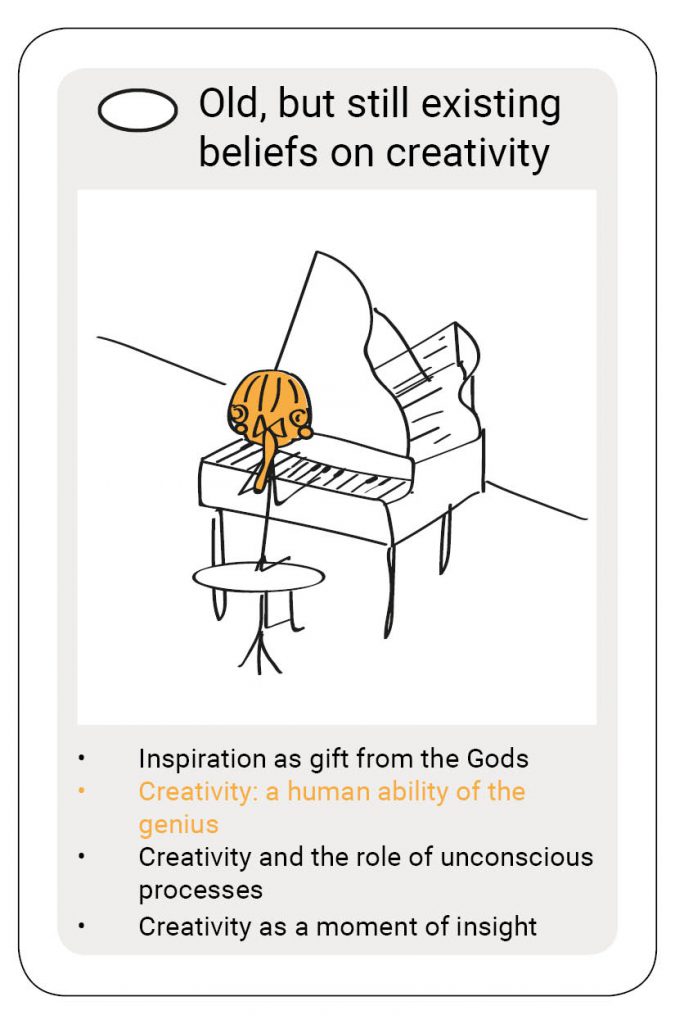
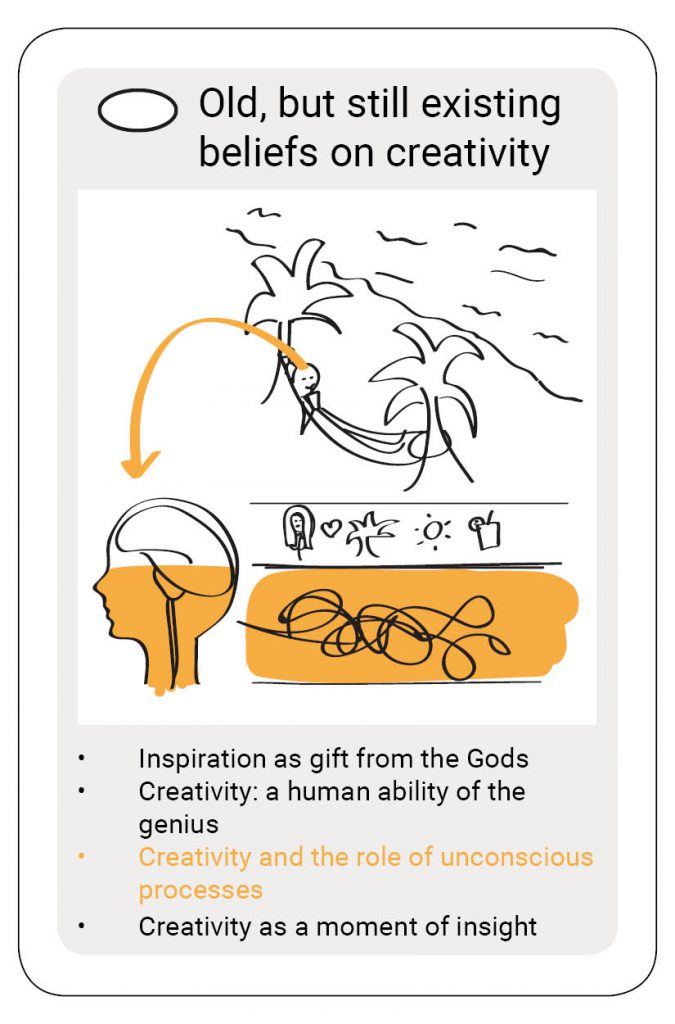
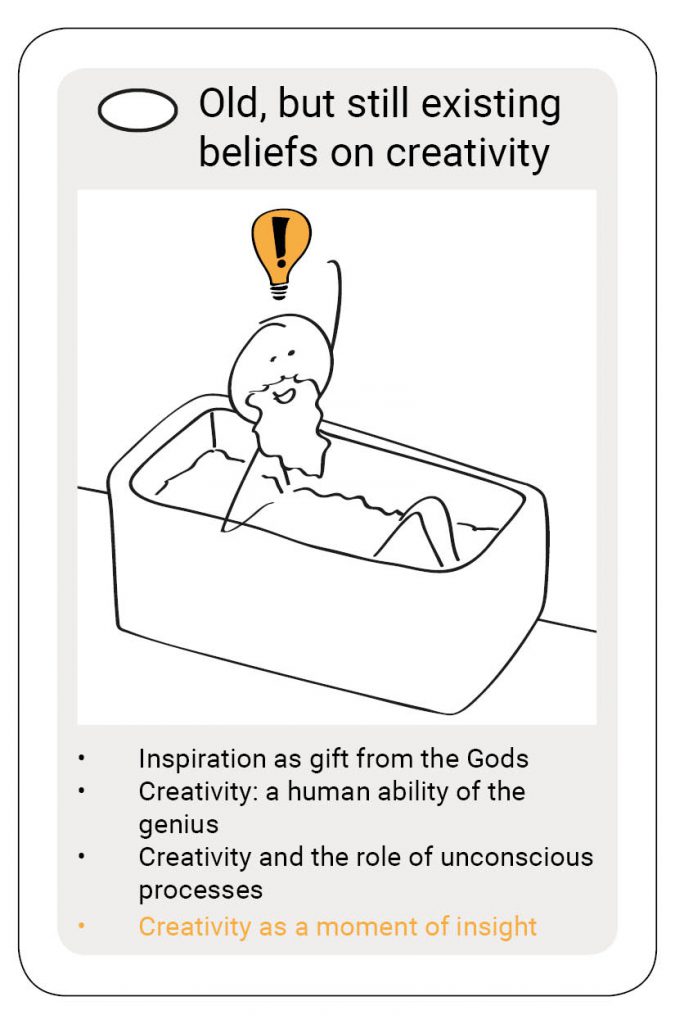
The creativity quartet combines my knowledge of and experience with creativity. Just like any other person I have experience with creativity as long as I live, but more deliberate when I started studying Industrial Design Engineering in 2001. I have over fifteen experience in facilitating and training creativity. My interest in creativity theory started in 2015. And I’m currently looking into doing promotional research on creating an overview of creativity theories. What you read in the articles are my interpretations of the truth. If you have something to add to that, please do so. Ending with my favorite quote on creativity by Maya Angelou:
“You can never use up creativity. The more you use, the more you have.”
References
- Becker, G. (2011). “Mad Genius Controversy”, Encyclopedia of Creativity: Second Edition, eds. Runco, M. A. and Pritzker S.R., London, UK: Academic Press, 2011, Vol 2. pp. 69-74.
- Blackburn, S. (2014). “Creativity Not-So-Dumb Luck”, in: The Philosophy of Creativity, eds. Paul, E. S. and Kaufman S. B. New York, USA: Oxford University Press, 2014, pp. 147-156.
- Dacey, J. (2011). “Historical Conceptions of Creativity”, in Encyclopedia of Creativity: Second Edition, eds. Runco, M. A. and Pritzker S.R., London, UK: Academic Press, 2011, Vol 1. pp. 608-616.
- Eysenck, H. J. (1995). Genius: The natural history of creativity. New York: Cambridge University Press. Digital print 2003.
- Sawyer, R. K. (2012). Explaining Creativity: The Science of Human Innovation. New York: Oxford University Press.
Tags:
SUGGESTIONS FOR FURTHER READING
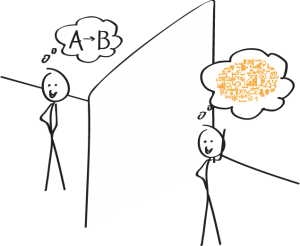
CQ16: There is no such thing as Creative Thinking
I finished Robert Weisberg’s 600+ page book on creativity in 2016. Weisberg (2006) concludes that creative thinking doesn’t exist. He makes a strong c
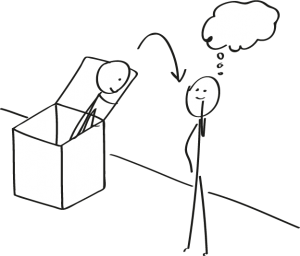
CQ5: Creativity is thinking outside the box. But which box?
The phrase ‘outside the box’ is often associated with creativity. Besides outside the box thinking, there are outside the box methods, outside the box

CQ13: Could Einstein paint like Picasso?
Could Einstein paint like Picasso? No. And Picasso was no brainiac like Einstein was. We give both men credit for their great creative contributions,
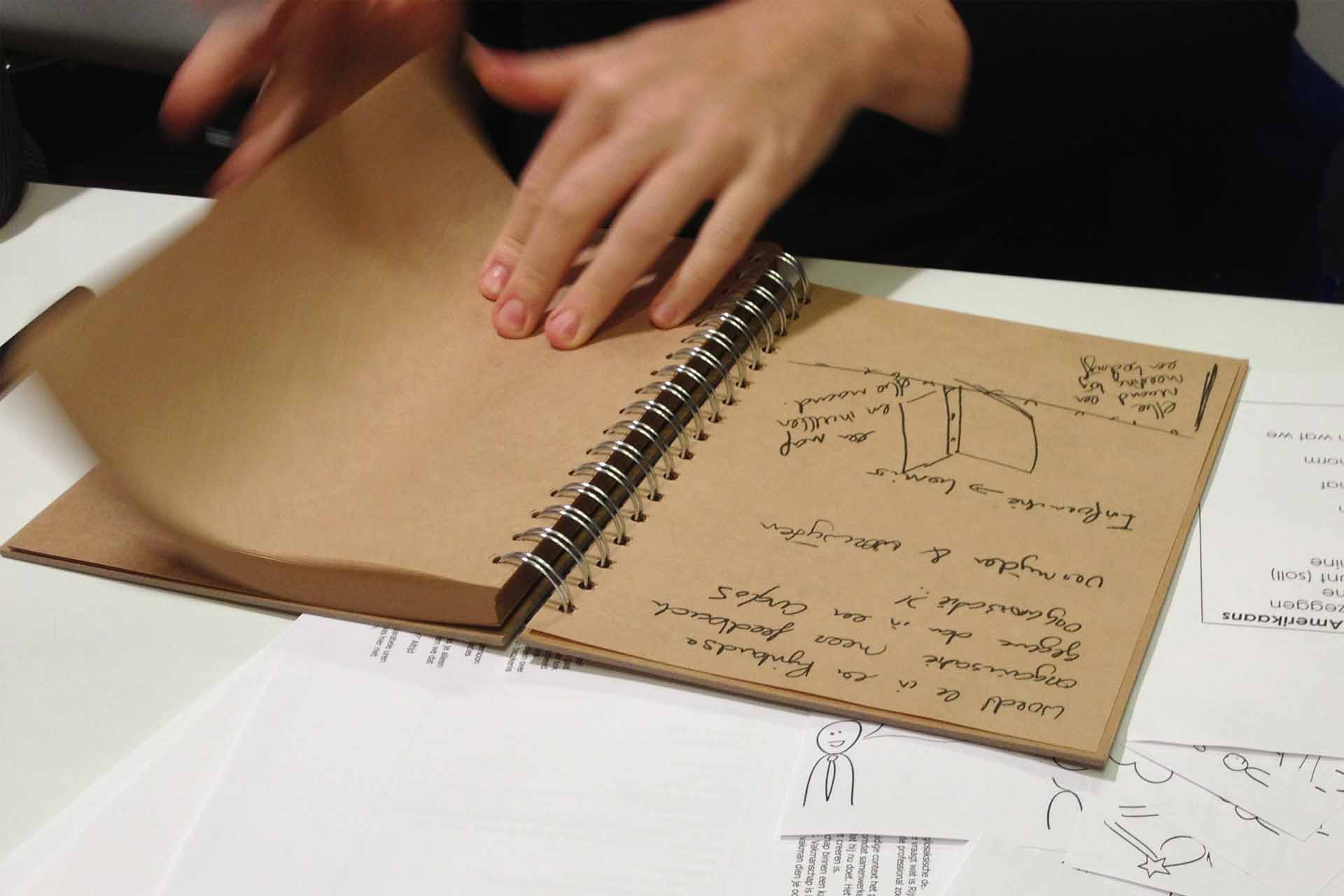
Title photo
Inspiration for inspiration
Would you like to receive the Creativity Quartet 2020 as inspiration? Think about how you can inspire us. For example, we have a coffee, you send us a book or article, link us to a person, point us to a website, etc. Leave your name and e-mail address and we’ll contact you for further information. We will not use your e-mail address to send you offers and won’t give away your information to other parties.



